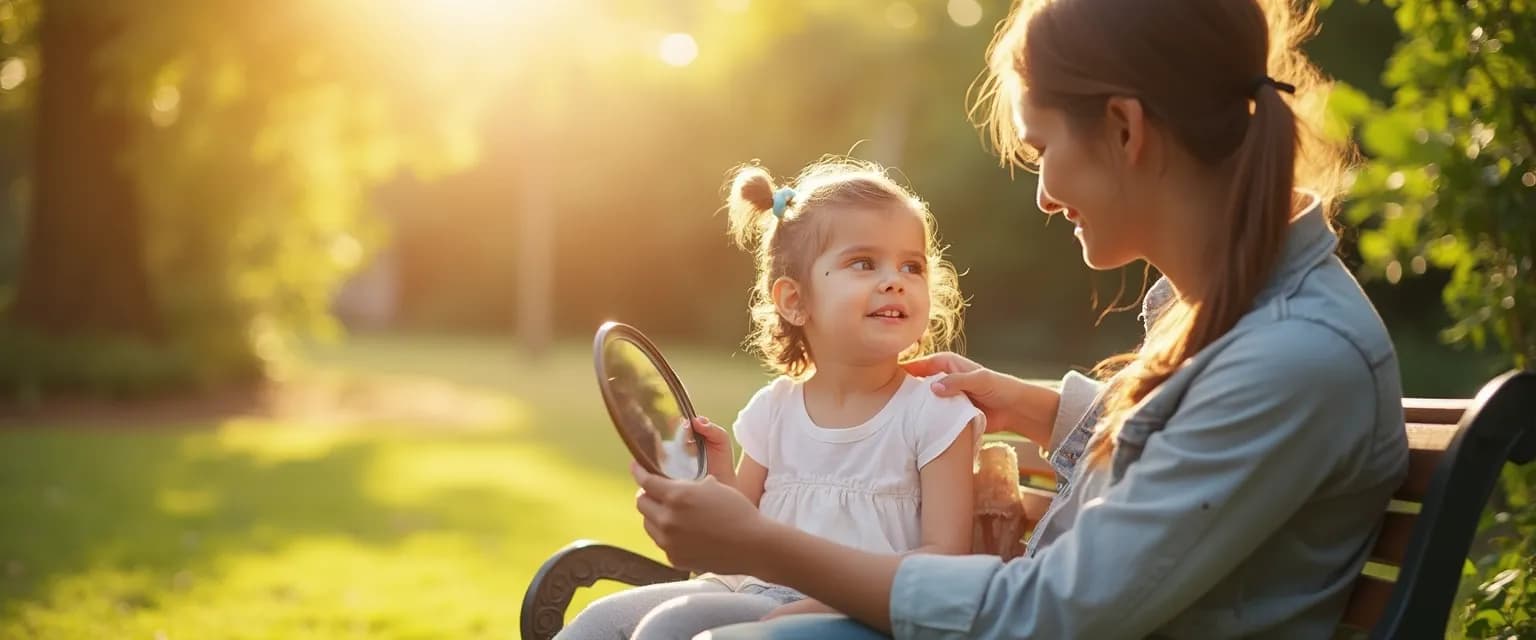Nurturing Your Child Through The Self-Awareness Journey: A Parent's Guide
Nurturing your child's self-awareness is one of the most valuable gifts you can offer as a parent. The self awareness journey begins in early childhood and continues throughout life, shaping how your little one understands their emotions, strengths, and challenges. As parents, we play a crucial role in guiding children through the self awareness journey, creating foundations that will support their emotional intelligence for years to come.
When we support our children through the self awareness journey, we're not just helping them understand themselves better today—we're equipping them with essential life skills. Children who develop strong self-awareness tend to make better decisions, form healthier relationships, and demonstrate greater resilience when facing life's inevitable challenges. The self awareness journey tips you'll discover here are designed to meet your child where they are developmentally while encouraging growth at their own pace.
Think of yourself as a gentle guide on your child's path to self-discovery—offering direction when needed, but also allowing space for natural exploration and personal growth experiences. This balanced approach creates the ideal environment for authentic self-awareness to flourish.
Foundations of The Self Awareness Journey in Different Age Groups
The self awareness journey evolves significantly as children grow. Understanding these developmental stages helps you provide appropriate support at each phase:
Toddlers (1-3 years)
At this stage, children begin recognizing themselves in mirrors and using "I" and "me." Enhance the self awareness journey by playing simple name games, talking about emotions as they happen ("You seem frustrated"), and celebrating their growing independence. Mirror activities particularly support the self awareness journey for young children.
Preschoolers (3-5 years)
As language develops, children can better express preferences and feelings. Effective the self awareness journey techniques include emotion flashcards, simple decision-making opportunities ("Would you like the red or blue cup?"), and conversations about how different people might feel in various situations.
Elementary Age (6-10 years)
Children now develop more complex self-awareness, including understanding their strengths and challenges. Support their self awareness journey by introducing positive self-perception activities like "strength spotting" (identifying what they're good at) and gentle reflection on areas for growth.
Tweens and Teens (11+ years)
Adolescents experience significant identity development. The self awareness journey guide for this age involves deeper conversations about values, interests, and future aspirations. Allow teens to explore different identities while providing a secure emotional foundation.
Throughout all stages, remember that the self awareness journey strategies should be tailored to your child's unique temperament and needs. Some children naturally reflect inward, while others may need more structured opportunities for self-discovery.
Conversations That Enhance The Self Awareness Journey
The quality of our conversations significantly impacts how children develop self-understanding. Effective the self awareness journey involves asking open-ended questions that prompt reflection without judgment:
- "What made you feel proud today?"
- "When that happened, what were you thinking?"
- "How did your body feel when you got angry?"
- "What helped you solve that problem?"
Create regular "connection points" throughout your day—bedtime, car rides, or meal times—where deeper conversations can naturally unfold. These moments become powerful catalysts in the self awareness journey.
Equally important is modeling healthy self-awareness yourself. When you say things like, "I'm feeling frustrated right now and need a moment to calm down," you demonstrate that understanding and managing emotions is part of the self awareness journey for everyone. Children learn more from watching how we navigate our own emotional experiences than from any lecture we could give.
Remember that the best the self awareness journey techniques emerge from authentic connection, not forced conversations. Follow your child's lead and build on their natural curiosity about themselves and others.
Supporting Your Child's Ongoing Self-Awareness Journey
How do you know if your child is developing healthy self-awareness? Look for these positive signs: they can identify and express their feelings, recognize their strengths and challenges without harsh self-judgment, show empathy toward others, and demonstrate growing decision-making abilities.
The self awareness journey isn't a destination but a lifelong process. Your role will evolve from active guide to supportive witness as your child matures. Celebrate small victories along the way—the first time they articulate a complex emotion or show insight into their behavior demonstrates meaningful progress in the self awareness journey.
By intentionally fostering your child's self-awareness from an early age, you're helping them develop the emotional intelligence they'll need throughout life. The self awareness journey you guide them through today creates the foundation for healthier relationships, better decision-making, and greater resilience tomorrow.




